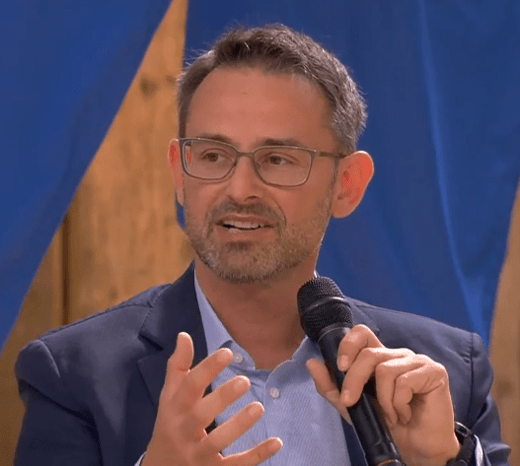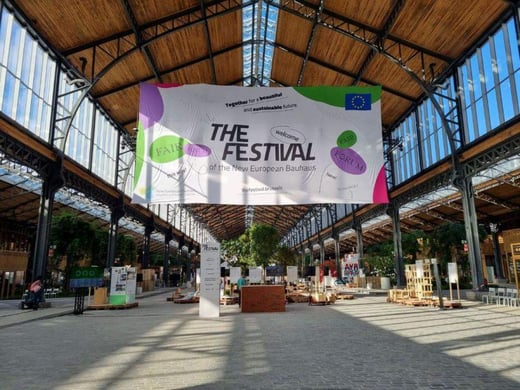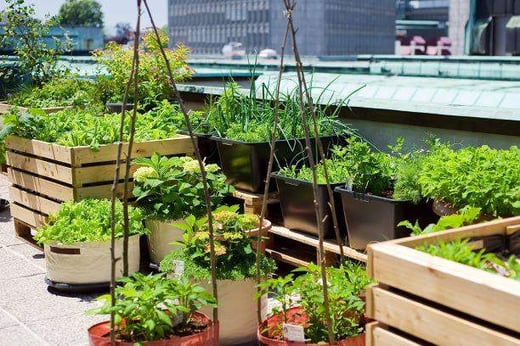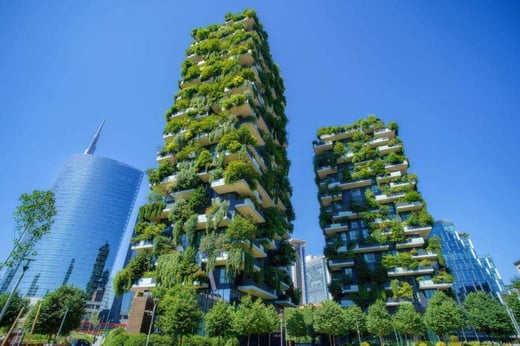Europe needs to put nature at the heart of its urban centres and introduce millions of green roofs to create attractive sustainable centres of the community that transform lives, the European Commission’s New European Bauhaus Festival was told.

“Legislation in Ljubljana mandates green roofs for buildings bigger than 400 m2 and in this case a giant, grey shopping mall roof became a living, breathing green space that brought people together,” he said.
“A basketball court, running track and play area were installed and it became a place where people could come together. Previously the community was far from any major park and surrounded by concrete. Now it has the gift of its own green space.”
SOCIAL IMPACT OF GREEN INFRASTRUCTURE

Jure, who is Knauf Insulation’s Green Solutions’ Advocacy Lead as well as Europe’s WGIN spokesman, told a festival panel that installing green roofs and green walls has a positive social and community impact which is at the heart of the Commission’s New European Bauhaus (NEB) concept.
The festival brought together a wide range of thought leaders to events across Europe to discuss the NBH concept which aims to re-imagine living spaces to make them more attractive and more sustainable while improving the lives of people who use them.
To inspire more green spaces, local municipalities must proactively involve their communities, Jure told a panel in Brussels attended by Budget and Administration Commissioner Johannes Hahne and Sorcha Edwards, Secretary General of Housing Europe.
 “We have seen numerous examples of schools installing green roofs after pupils have asked for them or communities calling for rooftop gardens to grow vegetables,” Jure said.
“We have seen numerous examples of schools installing green roofs after pupils have asked for them or communities calling for rooftop gardens to grow vegetables,” Jure said.
“If municipalities do not ask communities what they want, we lose an opportunity to create hundreds of small green areas which can be more effective than one or two big parks in terms of carbon capture and biodiversity.”
If municipalities are the drivers of urban green infrastructure, regional and European Union legislation should leverage every opportunity to put green roofs and walls at the centre of regulation, said Jure.
For instance, the revision of the Energy Performance of Buildings Directive (EPBD) should mandate the installation of green roofs on building renovation projects and the Urban Waste Water Treatment Directive (UWWTD) should be revised to include the widespread installation of green roofs to retain stormwater to prevent sewage system floods.
ENDLESS POTENTIAL OF GREEN INFRASTRUCTURE
In addition, the importance of the new Nature Restoration Law (NRL) cannot be underestimated. The NRL must provide clear guidance on how to implement green roofs, walls and other type of green infrastructure in dense urban areas.
The NRL must become a manual for municipalities with populations of more than 20,000 people to create local biodiversity strategies in line with the EU Biodiversity Strategy which was revised and adopted in 2021. The NRL needs to be fully maximised to introduce millions of new green spaces across Europe, said Jure.
 High profile projects such as the extraordinary Bosco Verticale in Italy — towers in Milan featuring 800 trees and 20,000 plants — demonstrate the endless potential of green infrastructure. However, green infrastructure building should not be just for the few.
High profile projects such as the extraordinary Bosco Verticale in Italy — towers in Milan featuring 800 trees and 20,000 plants — demonstrate the endless potential of green infrastructure. However, green infrastructure building should not be just for the few.
Jure asked: “What is stopping us from creating millions of roof top gardens across buildings? Is it cost? A green roof on a new building or renovation adds just 1% to 3% to costs but the value is incalculable.”
Green roofs offer huge benefits which are in line with New European Bauhaus’ ambition to provide attractive sustainable urban solutions.
BENEFITS OF GREEN ROOFS AND WALLS
Green roofs capture and retain stormwater allowing it to evaporate rather than flooding streets and overloading antiquated sewage systems, said Jure. They also absorb air pollution and cool down buildings during hot weather.
When it comes to biodiversity, vegetation is better for pollinators than concrete and, of course, green roofs and walls are incredible carbon sinks.
“Green roofs and walls are simple nature-based solutions that can be easily integrated into any old or new building to transform lives,” said Jure.
“They are good for people, good for society and great for the environment. New European Bauhaus is an incredible opportunity to rethink and redesign our urban landscape and it is vital that green infrastructure plays a key role in this.”
• To learn more about New European Bauhaus explore the European Commission’s site here and for more information about the World Green Infrastructure Network visit here.
|
Download our “Urban Smart Green” Magazine and learn why and how to turn the grey roofs to vegetated, green roofs.
|



